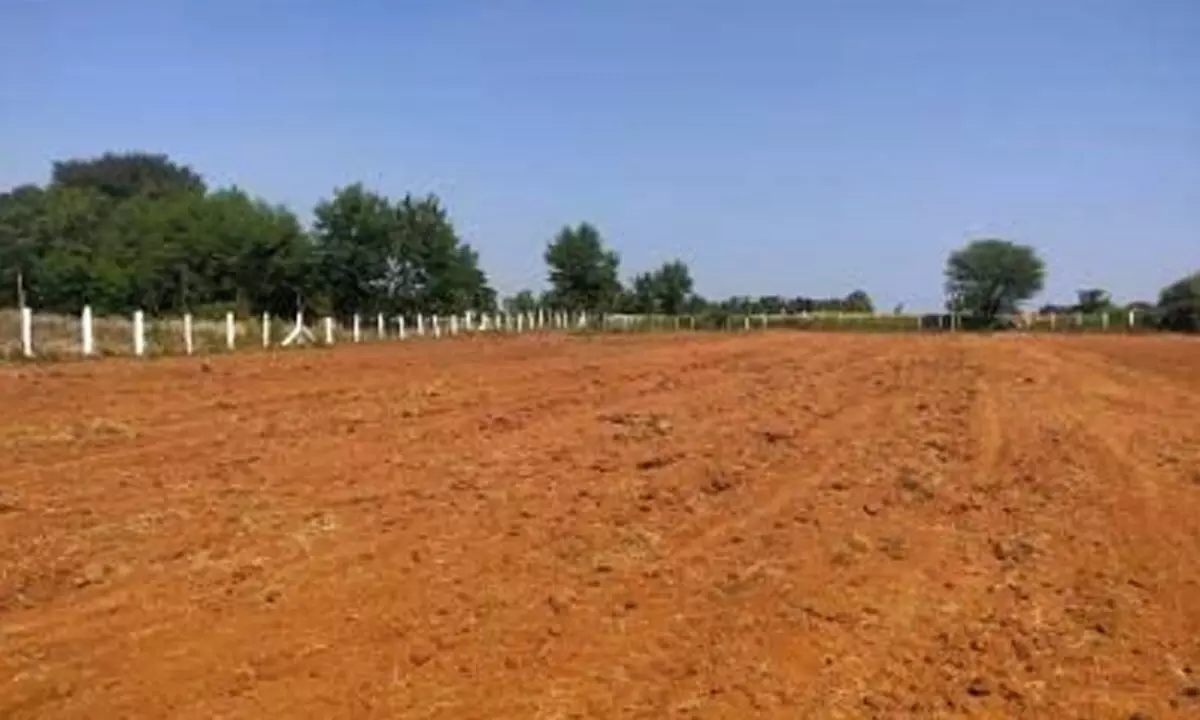Cultivation of groundnut crop declines in Anantapur

A groundnut crop land appears barren in Anantapur
- Groundnut seed sowing confines to only 45 per cent of the total area
- Observers say that farming operations have become expensive and investment burden has increased drastically
Anantapur-Sri Sathya Sai: About 55-60 percent of groundnut cultivation acreage remained uncultivated in the district and groundnut seed sowing was confined to only 45 percent of the total area. Those farmers, who ventured to cultivate, are those with guaranteed water sources and having the ability to withstand financial vagaries. Despite the district experiencing a climate change and registering considerable amount of rainfall, cultivation prospects should be better but farmers say that the district is not getting rains exactly during the groundnut season.
The farmers need rainfall at the time of sowing and intermittently. So nature is rubbing shoulders with groundnut farmers always on the wrong side of them. Here right things happen at the wrong time and vice-versa. Until recently famine conditions prevailed due to poor rainfall conditions but now despite rainfall improving its performance, it is not to the advantage of groundnut crop. There is always a mismatch between sowing season and rainy season.
The total groundnut acreage in the district is 2.50 lakh hectares. This season sowing had been done only in 1.01 lakh hectares. All other crops put together the acreage of non-groundnut crops stand at in any given year is 3.77 lakh hectares but during last kharif, the cultivation declined to 1.22 lakh hectares. By and large, cultivation of all crops put together is in a mere 45 percent of total cultivated area.
Farmers and even observers say that farming operations have become expensive and investment burden has increased drastically while there were no guarantees for marketing and remunerative price are fluctuating and volatile.
Rainfall patterns are different region wise. In June, 13 mandals registered high percentage of rainfall, while 12 mandals experienced normal rainfall and 6 other mandals registered deficit rainfall. Gooty, Yadiki, Beluguppa, Kalyandurg, Singanamala and Kambadur mandals recorded poor rainfall. Guntakal, Padevaduguru, Vajrakarur, Uravakonda, Gummagatta, Garladinne, Yellanur, Narpala, Bukkarayasamudram, Raptadu, Settur and Anantapur rural experienced normal rainfall.
Added to the vagaries of nature, the groundnut crop is not covered under central government's Fasal Bhima and climate-based insurance is being implemented here. Once news breaks out that the district experienced rains, the government does not even implement climate-based insurance as good rains means good and not bad climate.
Joint director of agriculture Chandra Naik told The Hans India that reports from Tahsildars have been sought on the mandal wise sowing scenario. He admitted that sowing percentage has drastically declined. Will send a report to the government and apply our mind on alternative crops.








